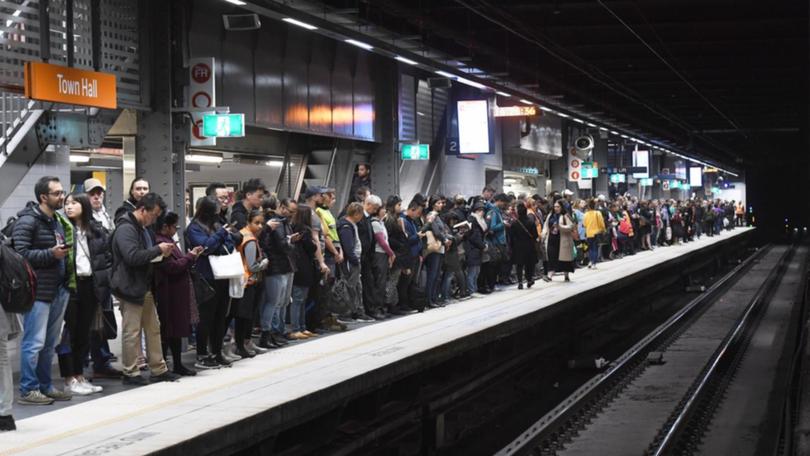Sydney train chaos: Premier Chris Minns pulls legal trigger in desperate bid to end long-running dispute
A near-shutdown of the nation's busiest rail network has prompted a state premier to come back to work early and escalate legal action in the hope of ending industrial action that is crippling the city.

A drastic legal move has been launched to end commuter chaos and resolve a long-running industrial dispute on Australia’s busiest rail network, with the NSW premier returning early from leave in an attempt to solve the crisis.
Some 1900 trains were cancelled on Wednesday while another 1000 services are expected to be cancelled on Thursday amid the latest round of work bans on the NSW train system.
Fewer than three in every 10 morning peak trains ran on time on Thursday.
Sign up to The Nightly's newsletters.
Get the first look at the digital newspaper, curated daily stories and breaking headlines delivered to your inbox.
By continuing you agree to our Terms and Privacy Policy.That led to the state’s premier returning to work early ahead of an attempt to resolve the dispute for good, by asking industrial umpire the Fair Work Commission to order all the Rail, Tram and Bus Union-instigated bans to end immediately.
“The economic cost is incalculable,” Premier Chris Minns told reporters.
“We don’t know how many small businesses have been smashed because of 50 per cent of trains not running.”
Fares should also be refunded, the premier said, and officials are looking at options to do so.
Passengers were earlier warned to stay at home if they could as storms and the ongoing industrial action plunged the rail network into chaos for a second day while the union mulled a new pay offer from the state government.
The cancellation rate on Wednesday hit more than 80 per cent during the afternoon travel peak.
Sydney Trains urged passengers to avoid all non-essential travel on Thursday morning as services continued to be cancelled due to the industrial action and severe overnight storms that tore down power lines.
Transport for NSW rail operations director Jas Tumber said work on the south coast rail line had been completed, so disruptions there would become less likely.
“It was a very challenging day for our frontline teams which was capped off with the wild storms which knocked out lots of power for the rail network,” she told Sydney radio 2GB on Thursday morning.
“The ability to operate and maintain the railway in its entirety becomes a very challenging proposition.”
NSW train drivers appear unlikely to accept a marginally increased pay offer of 15 per cent over four years, but their union has until the end of the day to provide an initial response to the government.
The two sides have been at loggerheads since September, with workers calling for four annual wage increases of eight per cent.
The government previously refused to budge from its initial pay offer of 11 per cent over three years, including a federally mandated superannuation increase.
But officials have since said a merger between NSW’s two rail bodies and “productivity gains”, which the union tipped to include 100 job cuts, allowed for the slight bump.
State secretary Toby Warnes said the deal on offer was “still quite low” and the government had refused to negotiate about savings the union had found to make the pay rise bigger.
“It’s been 42 days now since we had our last formal bargaining meeting ... we’ve told the government that our entire bargaining committee is ready, willing and able to negotiate through the night to get this done,” he told ABC Radio.
Sydney Trains chief executive Matt Longland said he respected the rights of workers to take action but those not completing full tasks would be docked pay.
